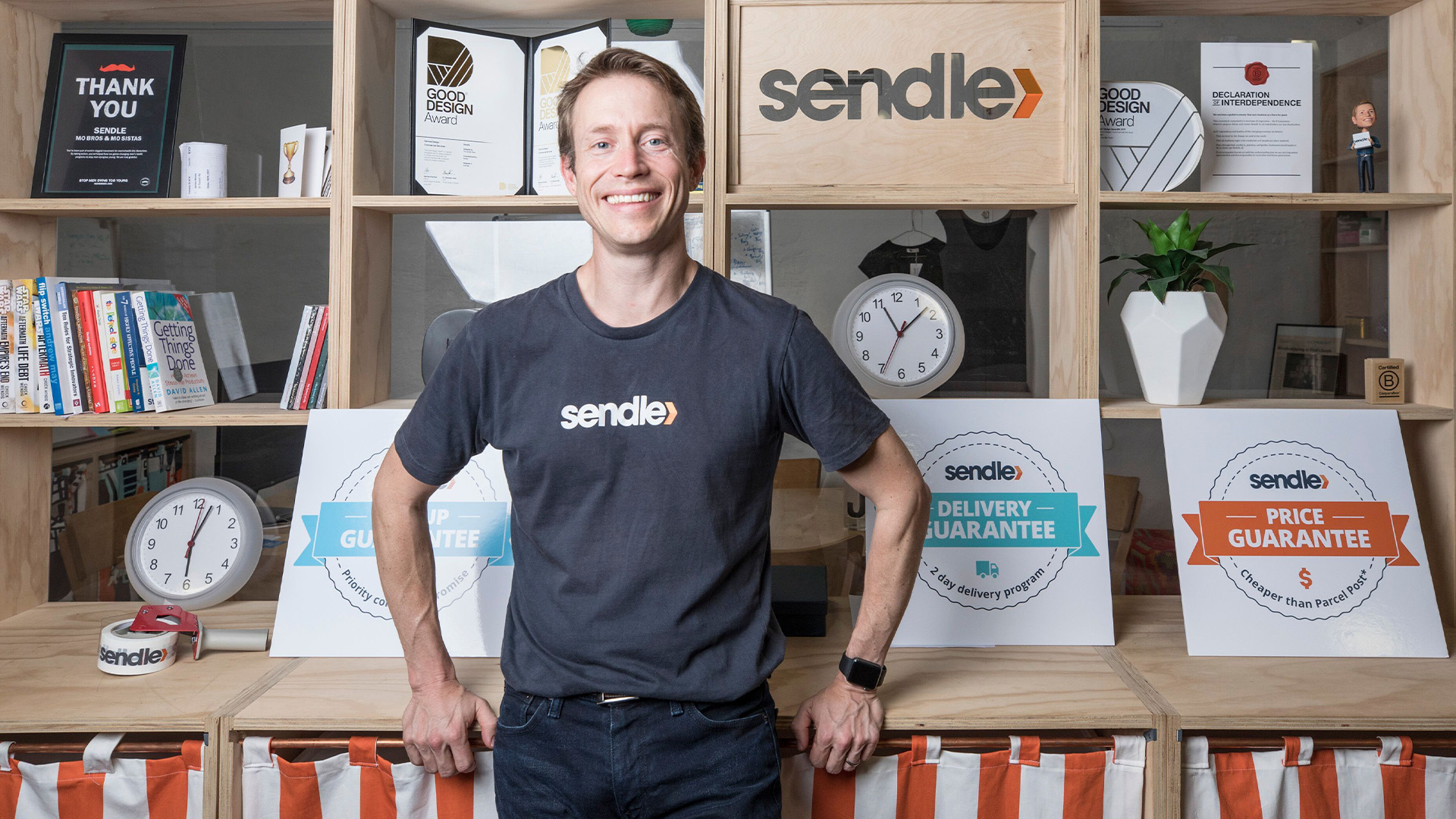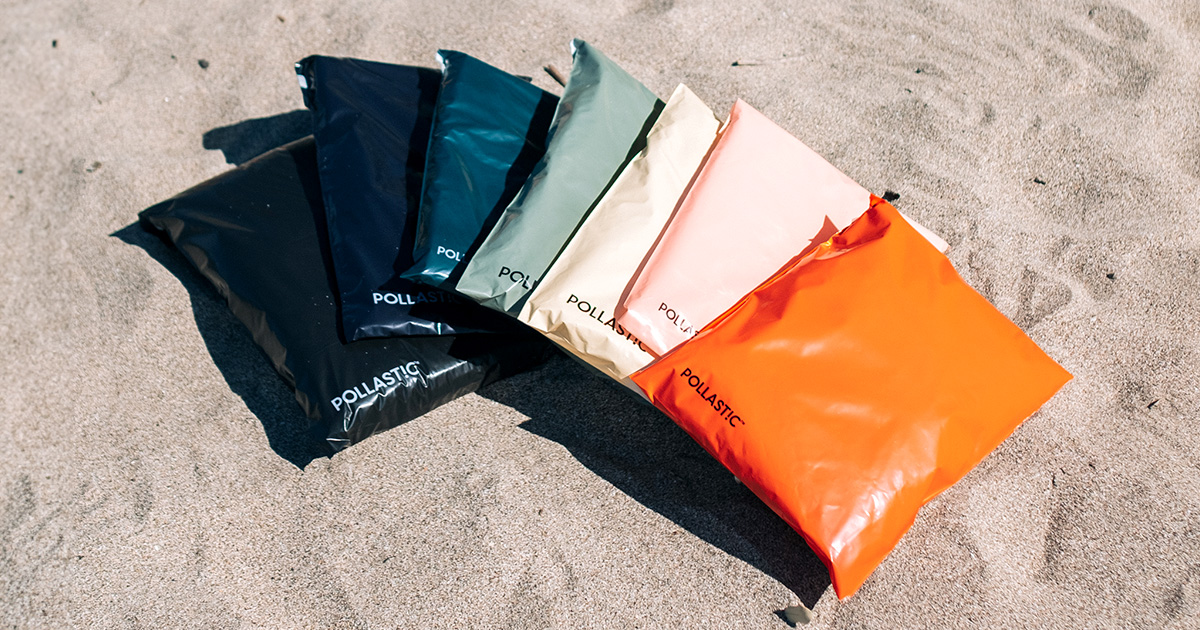March is B Corp month, so we sat down with Veena Harbaugh, Sendle’s Director of Sustainability, to talk about how being a B Corp benefits our customers and community. She shares a few tips for businesses keen to join the B Corp community as well.
The B is all about benefits
In case you’re wondering what the B in B Corp stands for, it’s “Benefit for all”. Veena explained that B Corps are companies committed to a purpose that generates benefits for people and the planet, as well as profits for shareholders. When you see a B Corp logo proudly displayed on a company’s website or shop front, you’ll know that it has undergone a rigorous process to earn that bold B sticker.

Sendle co-founder and CEO, James Chin Moody
Sendle’s co-founder and CEO, James Chin Moody, who has a background in innovation theory and the environmental movement, believes that businesses founded on a higher purpose are the ones that last the test of time. Rather than growing a company and then creating a philanthropic arm to give back, he wanted the business itself to create a positive impact.
The B Corp framework provided the tools that allow Sendle to measure and improve its impact as the business grows. Sendle was certified as a B Corp in 2014, making it Australia's first technology B Corp.
Being a B Corp benefits the bottom line

Being a B Corp helps attract and retain talent, customers and partners.
New team members often share that Sendle being a B Corp is what drew them to the company. There are opportunities for them to make decisions that optimise for positive impact, like reducing carbon or helping small businesses, unlike business-as-usual companies where it’s just the bottom line. Having this broader lens helps us serve our customers better because we care about their success, not just our own.
In the community, there's growing awareness of businesses’ impact on people and the planet, and consumers are seeking more sustainable offerings. They might actively seek out B Corps or simply recognise the symbol as a sign that they can trust the company.
The B Corp community is super collaborative. The sense of working towards the same purpose removes competitive barriers that might otherwise be encountered. Some of our partners, such as Vestiaire Collective, which is building a more sustainable future for fashion, are B Corps. Working together with these partners sets the tone for cooperation as we find ways to help each other.
B Corp benefits small business

Veena is convinced that working through the B Impact Assessment, which asks a series of questions about governance, workers, community, the environment and customers, is a valuable way for any business to examine its practices and a great way to come up with ideas for improvement.
Aligning with the B Corp ethos encourages you to evaluate and improve your core products and services. It helps you think more about the customers you serve and how you might offer services that benefit more disadvantaged communities. It prompts you to explore products and practices that have a positive social and environmental impact right from the beginning.
Small startups and solopreneurs might think they can’t commit time to the full certification process, but there are 375 Australian businesses with fewer than ten staff members already certified, so it’s definitely doable. After attending Assembly 2024, Allison Marrill, Lead Product Manager at Sendle, was blown away by the energy and commitment shown by hundreds of small businesses at the event.
But whether you’re using the impact checklist for guidance, or embarking on your first assessment, figuring out the legal component and building it into your corporate structure early on should be a priority. One of the conditions of certification is a legal requirement that the business benefits all its stakeholders, which means it exists to serve the environment, the community and its workers, not just the financial shareholders. The Benefits Corporation legal structure isn't available in Australia right now, so those wishing to be certified in Australia need to have governing documents which include a commitment to a triple bottom line approach to business. B Lab provides guidance for different legal entities.
Moving forward in B Corp month
March is B Corp month, and here at Sendle, we’re reinforcing our commitment to the environment and giving all Sendlers an opportunity to make a difference when they use our new POLLAST!CTM satchels.
These new mailers are made from ocean-bound plastic that has been stopped in its tracks before reaching the sea. Developed by Better Packaging Co (another B Corp) they have been assessed to have the lowest carbon footprint of any commercial packaging currently available – even lower than recycled paper satchels.

We’re also embarking on our next B Corp certification. The business has grown and changed in the last three years so there are new activities to measure. And of course, there was COVID, which meant new policies, such as the virtual office stewardship policy, supporting our people who are now working remotely so they can make their home offices more sustainable.
As well as looking back, it’s an opportune time to look further forward to how the next certification aligns with our business strategy and Net Zero policy. As Veena says, it's a good checkpoint of what our business still needs to do.
For Sendlers keen to become a business for good themselves, this is a great time to start the journey. There are lots of events planned during B Corp month where you can meet with other businesses that are certified or on the path to certification.
Now is the time to move forward together to pave the way for better business.

